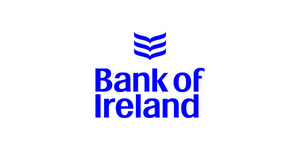If you've set your heart on a house and are turned down for a mortgage because of a bad credit history, it can feel like the end of the world. But one rejection needn't be the end of your dream of home ownership. The key is to understand what it all means.
What is a "bad credit history"?
There are a number of reasons why your credit history might raise a red flag to lenders; for example, if you have a history of missed or late payments on a credit card, or have a County Court Judgment (CCJ) against you, or even that you have previously had a house repossessed.
Most high street lenders use a scoring system to assess the risk of you not paying them back on time (or at all), and while the odd late payment might not be such a big deal, a pattern of such behaviour, or having been made bankrupt (for example), could tip the scales against you. Alternatively, you might be accepted, but charged higher fees and/or a higher rate of interest, both to mitigate the perceived additional risk and because lenders know borrowers with a poor credit rating don't have as many options as those with no problems.
Five key factors are taken into account to determine your credit score:
1. Your payment history - your record of paying your debts, including credit cards, personal loans, and mortgages.
2. The amount of debt you have currently - whether your credit cards are spent up to the limit and whether you currently have any outstanding loans.
3. The length of your credit history - a long and diverse credit history can be to your advantage, even if it is a little spotty in places. (If someone has never borrowed before and so has no credit history, they can be considered a higher risk as there is little data to work with when assessing them.)
4. The types of credit you have previously accessed - this will give an overview of how you have accessed and managed your credit in the past.
5.The number of credit searches made against you - a high number of searches might suggest you have been taking on more debt than you can handle. (If you request a copy of your credit report or a potential lender conducts a pre-approval check, this should not have a negative impact on your rating.)
There are a number of credit reference agencies in the UK, the main ones being, Experian, Equifax, TransUnion and CreditKarma. These agencies gather data on people, and how they manage their debts and payments, and provide it to lenders to help them make a decision as to whether to extend credit to an individual. It's important to remember that these agencies do not make decisions on credit themselves; they provide data on which lenders make decisions.
The two main categories the information they hold falls into are credit account information and public information.
Credit account information comes from the major lending companies in the UK, who have agreed to share details of their customers' credit agreements, including how much they owe and how they are managing their account(s).
Public information consists of information held on the electoral roll; CCJs; and bankruptcies, debt relief orders, individual voluntary arrangements and administration orders.
A CCJ is recorded for six years from the date of the judgment, but if the debt is cleared within one month, it is removed from the record. If it is cleared after one month, it is marked as "satisfied". Bankruptcies also remain on record for six years.























